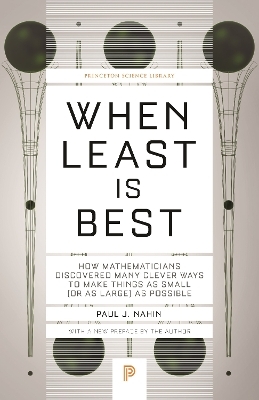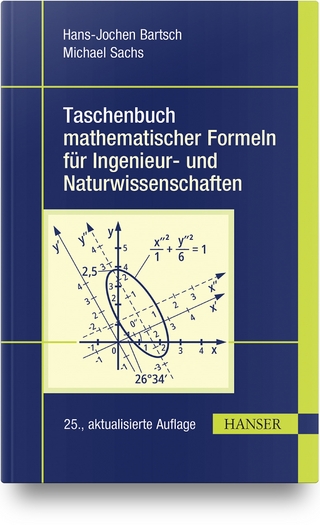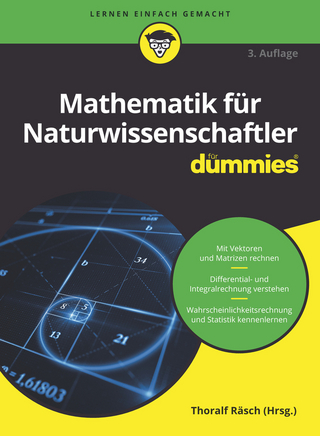
When Least Is Best
How Mathematicians Discovered Many Clever Ways to Make Things as Small (or as Large) as Possible
Seiten
2021
Princeton University Press (Verlag)
978-0-691-21876-2 (ISBN)
Princeton University Press (Verlag)
978-0-691-21876-2 (ISBN)
A mathematical journey through the most fascinating problems of extremes and how to solve themWhat is the best way to photograph a speeding bullet? How can lost hikers find their way out of a forest? Why does light move through glass in the least amount of time possible? When Least Is Best combines the mathematical history of extrema with conte
A mathematical journey through the most fascinating problems of extremes and how to solve them
What is the best way to photograph a speeding bullet? How can lost hikers find their way out of a forest? Why does light move through glass in the least amount of time possible? When Least Is Best combines the mathematical history of extrema with contemporary examples to answer these intriguing questions and more. Paul Nahin shows how life often works at the extremes—with values becoming as small (or as large) as possible—and he considers how mathematicians over the centuries, including Descartes, Fermat, and Kepler, have grappled with these problems of minima and maxima. Throughout, Nahin examines entertaining conundrums, such as how to build the shortest bridge possible between two towns, how to vary speed during a race, and how to make the perfect basketball shot. Moving from medieval writings and modern calculus to the field of optimization, the engaging and witty explorations of When Least Is Best will delight math enthusiasts everywhere.
A mathematical journey through the most fascinating problems of extremes and how to solve them
What is the best way to photograph a speeding bullet? How can lost hikers find their way out of a forest? Why does light move through glass in the least amount of time possible? When Least Is Best combines the mathematical history of extrema with contemporary examples to answer these intriguing questions and more. Paul Nahin shows how life often works at the extremes—with values becoming as small (or as large) as possible—and he considers how mathematicians over the centuries, including Descartes, Fermat, and Kepler, have grappled with these problems of minima and maxima. Throughout, Nahin examines entertaining conundrums, such as how to build the shortest bridge possible between two towns, how to vary speed during a race, and how to make the perfect basketball shot. Moving from medieval writings and modern calculus to the field of optimization, the engaging and witty explorations of When Least Is Best will delight math enthusiasts everywhere.
Paul J. Nahin is the author of many popular math books, including How to Fall Slower Than Gravity and Hot Molecules, Cold Electrons (both Princeton). He is professor emeritus of electrical engineering at the University of New Hampshire.
| Erscheinungsdatum | 11.05.2021 |
|---|---|
| Reihe/Serie | Princeton Science Library |
| Zusatzinfo | 99 b/w illus. |
| Verlagsort | New Jersey |
| Sprache | englisch |
| Maße | 140 x 216 mm |
| Themenwelt | Mathematik / Informatik ► Mathematik ► Allgemeines / Lexika |
| Mathematik / Informatik ► Mathematik ► Geschichte der Mathematik | |
| ISBN-10 | 0-691-21876-5 / 0691218765 |
| ISBN-13 | 978-0-691-21876-2 / 9780691218762 |
| Zustand | Neuware |
| Informationen gemäß Produktsicherheitsverordnung (GPSR) | |
| Haben Sie eine Frage zum Produkt? |
Mehr entdecken
aus dem Bereich
aus dem Bereich
Buch | Hardcover (2023)
Hanser, Carl (Verlag)
CHF 41,95
Buch | Softcover (2023)
Springer Spektrum (Verlag)
CHF 46,15


